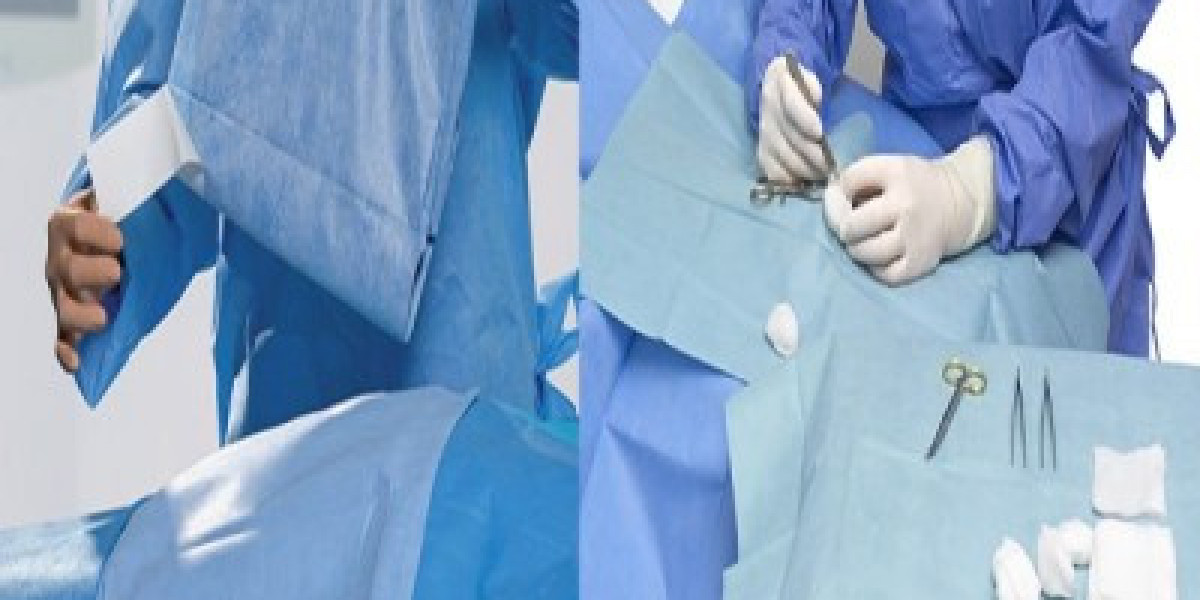Surgical glues, also known as surgical sealants or tissue sealants, are liquid solutions that are used in surgical procedures as an alternative to traditional sutures or staples to close incisions and wounds. When applied to skin or tissue, surgical glues quickly form a bond that holds the edges of a surgical site together as it dries.
Types of Surgical Glues
There are a few main types of surgical glues that are commonly used:
Fibrin Sealants
Fibrin sealants are composed of human fibrinogen and thrombin components that mimic the last step of the blood coagulation pathway. Surgical Glues applied, fibrin sealants polymerize to form a mesh that mimics a natural blood clot. Some common fibrin sealants include Tisseel and Evicel.
Collagen-Based Sealants
Collagen-based sealants form a gel-like substance made from purified collagen derived usually from cows. As they dry, collagen sealants shrink to draw and hold tissue edges together. Examples include CoStasis and Archimedes.
Cyanoacrylate-Based Sealants
Cyanoacrylate glues, also known as superglues, form very strong yet flexible bonds extremely quickly. They are composed of alkyl cyanoacrylates that rapidly polymerize when in contact with tissue moisture and proteins. Common brands include Dermabond and Indermil.
Gelatin-Thrombin-Based Sealants
Gelatin-thrombin sealants are made from thrombin mixed with gelatin to promote clotting. When moistened, they swell into a gel that promotes coagulation. An example is FloSeal.
Advantages of Surgical Glues
There are several key advantages of using surgical glues instead of sutures or staples:
- Faster procedure time - Glues form bonds extremely quickly, usually within 10-30 seconds, saving operating time compared to placing individual sutures or staples.
- Less invasive - Glues require no puncture wounds from needle sticks and cause less trauma to fragile tissues compared to ties or staples being inserted.
- Improved cosmetic results - Scar formation is reduced with glues versus visible stitch or staple marks, leading to improved healing.
- Lower risk of infection - The absence of foreign bodies like sutures or staples that can harbor bacteria reduces surgical site infections.
- Easy application - Glues are simple for surgeons to apply through specially designed applicator tips without needing tying or closing skills.
- Less discomfort for patients - Glues cause less pain than sutures or staples being inserted and removed later.
Uses of Surgical Glues in Different Specialties
Cardiothoracic Surgery
In cardiac surgery, glues are commonly used to seal incisions in vessels or to reinforce anastomotic sites where vessels have been reattached after bypass grafting. They reduce the risk of bleeding from suture or staple lines. Glues also help fuse leftover pericardial tissue after procedures.
General and Vascular Surgery
For procedures like hernia repair, bowel resection, or artery bypass, glues provide an alternative to sutures for wound closure. They are also used for sealing leaks from solid organs during surgery or to reinforce staple lines.
Neurosurgery
In brain and spinal surgeries, glues help achieve watertight closure of dura mater layers to prevent CSF leakage. They also promote hemostasis of small vessels during tumor removal procedures.
Orthopedic Surgery
In orthopedics, glues help secure grafts, reinforce fixation devices, fill defects during bone repairs, or fuse torn cartilage. They offer an improvement over metal wire or screw fixation.
Obstetrics/Gynecology
Glues help repair episiotomies, reduce blood loss during myomectomies or hysterectomies, and seal vessels during cesarean deliveries or prostatectomies. They provide improved cosmesis for abdominal incisions.
Plastic and Reconstructive Surgery
In skin grafting or tissue transfers, glues securely affix new tissue layers in place. They also aid wound closure for skin cancer excisions, contusions, and lacerations.
Considerations When Using Surgical Glues
While surgical glues offer clear advantages, there are some factors surgeons must consider:
- Cost is generally higher per unit than sutures or staples, though this may be offset by shorter procedures.
- Glues are only effective on dry, opposed tissue edges so bleeding must be controlled prior to use.
- Thickness of the tissue and type of glue used impacts strength and duration of the bond formed.
- Foreign body reactions are possible, especially with cyanoacrylate-based products, so allergy testing may be needed.
- Standard precautions apply such as sterile technique to prevent introducing infection at incision sites.
The Future of Surgical Glues
Research continues to develop new formulations of surgical glues. Scientists are working on glues that are even more biocompatible with less inflammatory responses. Others aim to create glues that deliver drugs locally to aid healing or prevent infections. There is also interest in developing glues that are reversible in case a bond needs to be broken without cutting if complications arise. As new products emerge, surgical glues have great potential to become a mainstay method for closing surgical incisions.
Get This Report in Japanese Language: 外科用接着剤
Get This Report in Korean Language: 수술용 접착제
About Author:
Ravina Pandya, Content Writer, has a strong foothold in the market research industry. She specializes in writing well-researched articles from different industries, including food and beverages, information and technology, healthcare, chemical and materials, etc. (https://www.linkedin.com/in/ravina-pandya-1a3984191)









